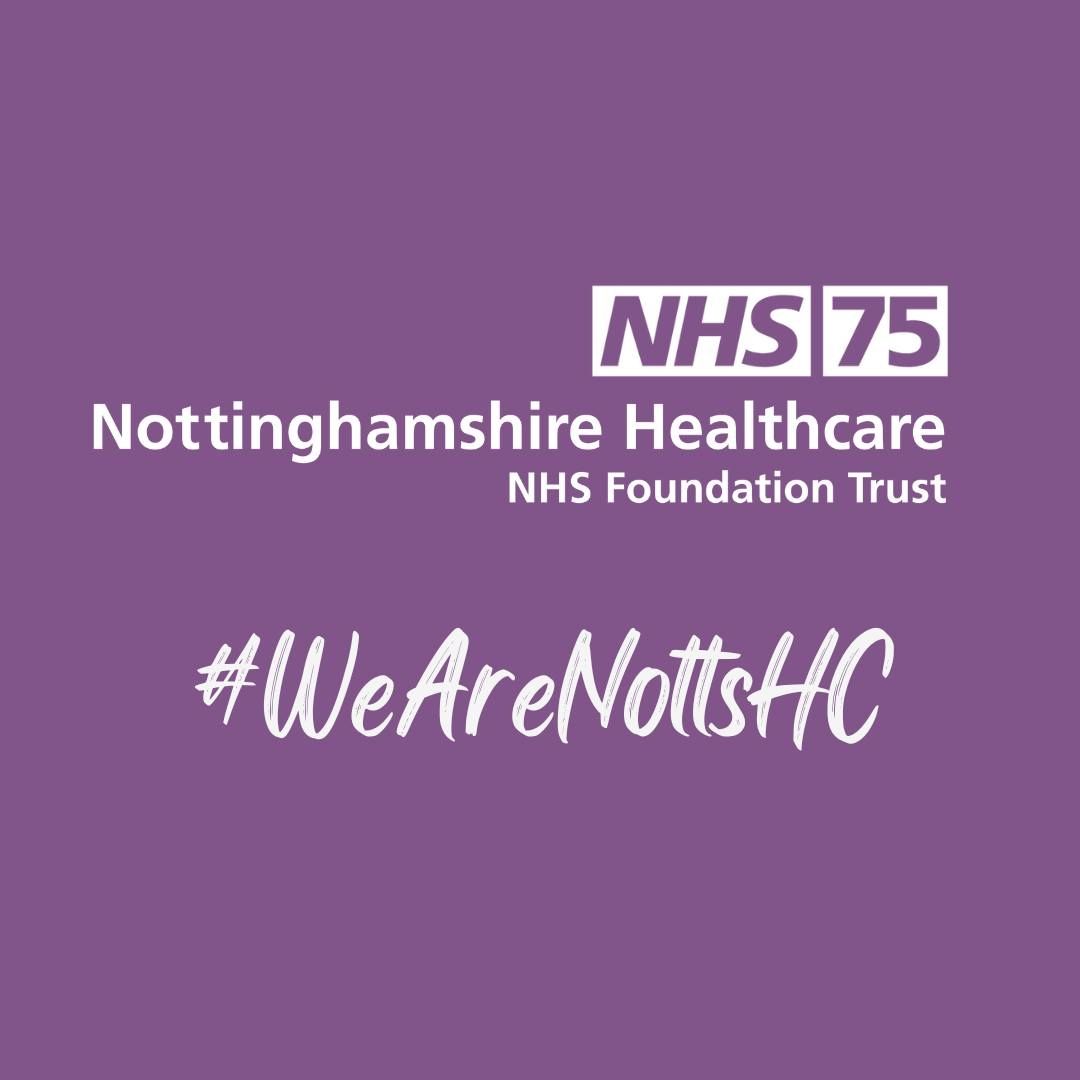预约演示
更新于:2025-05-07

Nottinghamshire Healthcare NHS Foundation Trust
更新于:2025-05-07
概览
关联
28
项与 Nottinghamshire Healthcare NHS Foundation Trust 相关的临床试验ISRCTN13692666
Psychological therapy readiness and resourcing in oncology – support to promote an enhanced response (PROSPER): a randomised controlled trial
开始日期2024-10-17 |
NCT06364488
TrueBlue Clinical Study - Investigating the Use of a Mobile Phone App TrueBlue for Monitoring Depression and Anxiety
This trial will assess the safety, feasibility, acceptability, usability and agreement with validated scales of an automated mood monitoring App (TrueBlue), in adult, perinatal participants (recruited between 12 weeks of pregnancy and 12 weeks post-partum), recruited across multiple sites in Nottinghamshire, United Kingdom (UK). An initial within-study pilot phase will assess key aspects of the study including recruitment rate, usability issues and a detailed understanding of any device related adverse events; prior to full recruitment of a total 125 participants over a total 14-month period.
开始日期2024-10-01 |
申办/合作机构 |
ISRCTN10285713
Neuropsychological Evaluation and Rehabilitation in Multiple Sclerosis (NEuRoMS): A mixed methods pragmatic multicentre Randomised Controlled Trial (RCT) with nested health economic and process evaluations and an implementation study (Phase 3: Work Packages 4 and 5)
开始日期2024-06-01 |
100 项与 Nottinghamshire Healthcare NHS Foundation Trust 相关的临床结果
登录后查看更多信息
0 项与 Nottinghamshire Healthcare NHS Foundation Trust 相关的专利(医药)
登录后查看更多信息
322
项与 Nottinghamshire Healthcare NHS Foundation Trust 相关的文献(医药)2025-05-01·BJPsych Open
A systematic environmental intervention, nidotherapy, given to whole communities: protocol for a randomised stepped-wedge trial
Article
作者: Kendall, Tim ; Ahmad, Abdullah ; Yang, Min ; Tyrer, Peter ; King, Jacob ; Crawford, Mike ; Mullins, Elizabeth ; Xing, Yangang ; Frisira, Eleni ; Duggan, Conor ; Barrett, Barbara ; Parish, Richard ; Daley, David ; Caan, Woody
2025-03-04·Reflective Practice
Rapid review of facilitating reflective practice groups with staff in adult inpatient mental health settings
作者: Galway, Róisín ; Beryl, Rachel ; Mackay, Kirstie-Louise ; Wilkinson, Dawn ; Siddall, Yasmin ; Leah, Kirsty ; White, James P. ; Mistry, Dipti ; Seagrief, James ; Beason, Simone ; Gaynor, Billie
2025-03-01·BJPsych Open
Impact of young people’s admissions to adult mental health wards in England: national qualitative study
Article
作者: Holland, Josephine ; Fung, Nicole ; Burn, Anne-Marie ; Hopkin, Elinor ; Roe, James ; Sayal, Kapil ; Dubicka, Bernadka ; Tuomainen, Helena ; Wild, Lorna ; James, Anthony ; Fisher, Michelle ; Wagner, Adam ; Ford, Tamsin ; Morriss, Richard ; Nazir, Saeed
100 项与 Nottinghamshire Healthcare NHS Foundation Trust 相关的药物交易
登录后查看更多信息
100 项与 Nottinghamshire Healthcare NHS Foundation Trust 相关的转化医学
登录后查看更多信息
组织架构
使用我们的机构树数据加速您的研究。
登录
或

管线布局
2026年02月08日管线快照
无数据报导
登录后保持更新
药物交易
使用我们的药物交易数据加速您的研究。
登录
或

转化医学
使用我们的转化医学数据加速您的研究。
登录
或

营收
使用 Synapse 探索超过 36 万个组织的财务状况。
登录
或

科研基金(NIH)
访问超过 200 万项资助和基金信息,以提升您的研究之旅。
登录
或

投资
深入了解从初创企业到成熟企业的最新公司投资动态。
登录
或

融资
发掘融资趋势以验证和推进您的投资机会。
登录
或

生物医药百科问答
全新生物医药AI Agent 覆盖科研全链路,让突破性发现快人一步
立即开始免费试用!
智慧芽新药情报库是智慧芽专为生命科学人士构建的基于AI的创新药情报平台,助您全方位提升您的研发与决策效率。
立即开始数据试用!
智慧芽新药库数据也通过智慧芽数据服务平台,以API或者数据包形式对外开放,助您更加充分利用智慧芽新药情报信息。
生物序列数据库
生物药研发创新
免费使用
化学结构数据库
小分子化药研发创新
免费使用